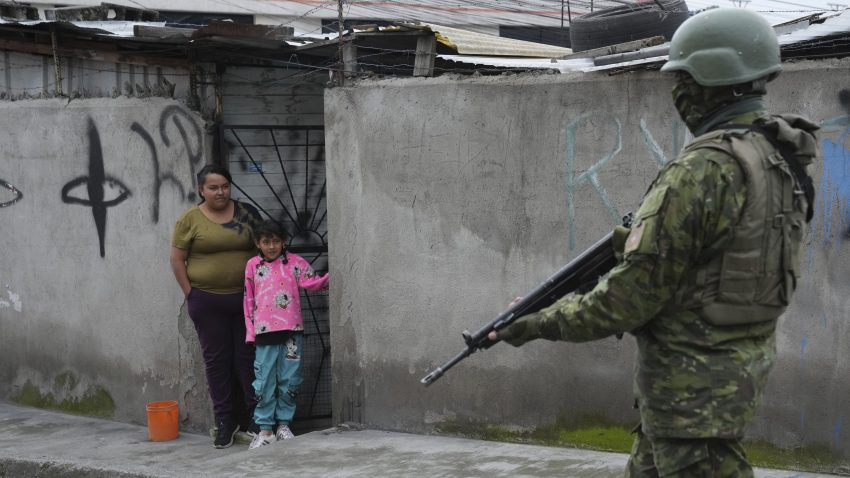Last week, Ecuadorian President Daniel Noboa, who has been in office for less than two months, announced a state of emergency allowing the government to suspend certain civil liberties, after the leaders of two criminal gangs—Los Choneros and Los Lobos—escaped from prison. The following day, as the gangs unleashed a wave of violence across Ecuador in response, Noboa formally declared that the country is in a state of “internal armed conflict” and authorized the armed forces to carry out military operations against 22 different gangs, including Los Choneros and Los Lobos.
The violence that triggered Noboa’s declaration of an internal armed conflict was horrific. Several bombs exploded in various cities, including one outside the house of a Supreme Court justice. Police officers were kidnapped. Prison guards were taken hostage at various facilities around the country, and several execution videos were posted to social media. Gunmen also attacked university campuses, public transportation and even a television studio in the middle of a live, on-the-air broadcast.
Though the paroxysm of violence seemed sudden, the crisis has been building for a while. Ecuador’s homicide rate more than tripled in the past four years. Prison fights and massacres have occurred with regularity across the country’s penal system. But the more recent waves of violence, including the horrific attacks last week, are intended to send a message to Ecuador’s population and its political leaders. They demonstrated the influence of the gangs and suggested that other political and strategic targets could be hit in the weeks to come. Beginning with the assassination of presidential candidate Fernando Villavicencio during the election campaign last year, there has been a sharp politicization of the violence that has turned it from a battle about crime to a conflict that threatens the governability of the country.

